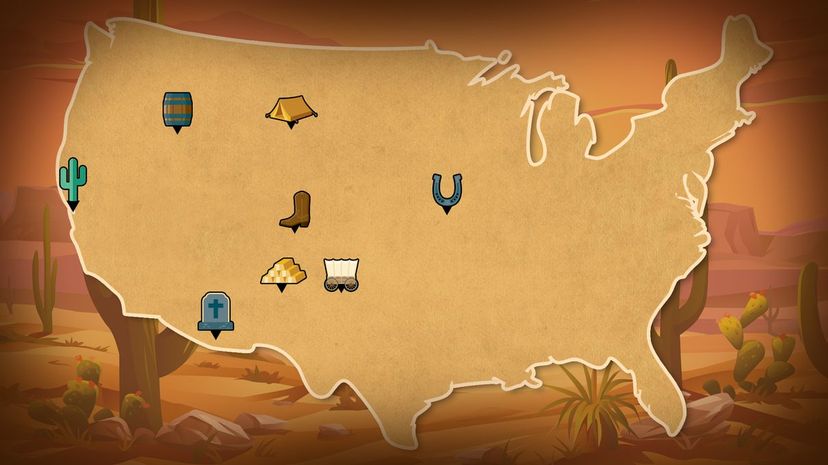
About This Quiz
The Wild West is a hard time to pin down precisely. The mythological Wild West, that era of cowboys and outlaws like Buffalo Bill and Wyatt Earp, really fits into the period of time between 1850 and 1920. Of course, the American Frontier was going strong well before this and you're really looking at the expansion westward which started in the 17th century before America was even America. This is the time period when many of these little legendary towns were founded. Some of them went the way of the cowboys who inhabited them, like Tombstone, Arizona, only living on in legend and tourist guides. Others grew to become major cities like San Francisco, California, and Billings, Montana. But whether they survived the Wild West unscathed or rolled off into the sunset like a tumbleweed on the breeze, there were a lot of towns that help shaped what we know today as the Wild West. These were the places that were at the edge of the frontier, where people tried to carve out a living in some of the hardest circumstances. Life was a heck of a lot different back then and so was America.
If you have a passion for the history of the Wild West, then let's see if you can place where some of the most significant towns from the time might have been on a map. Take the quiz and see!
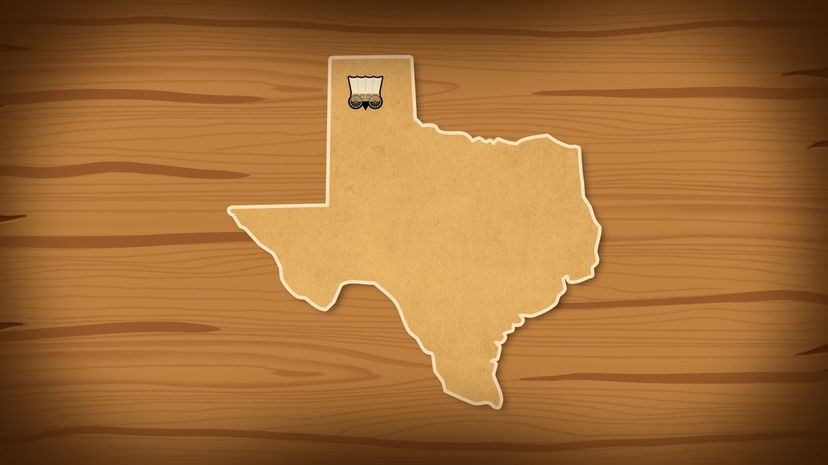
The land for Amarillo was picked out in 1887 because it was on the route of the Fort Worth and Denver City Railroad. There was plenty of water to make it a prime location and it became a major stopping point for people in the area. To this day it's still a very cowboy focused place.
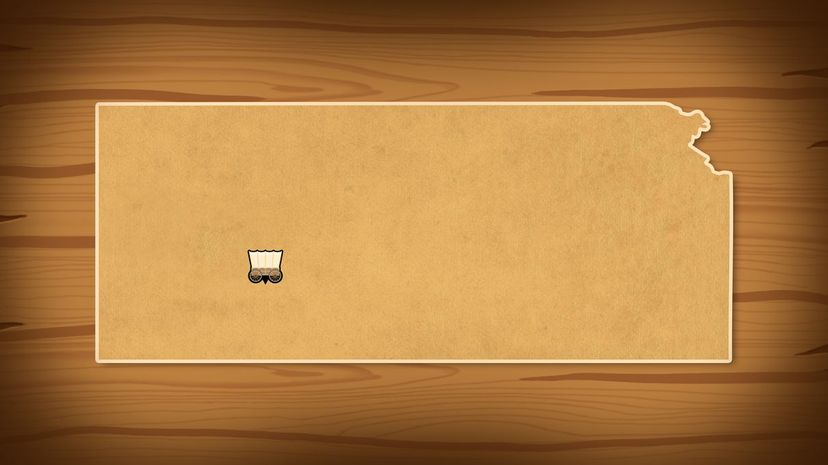
Over 27,000 people still live in Dodge City, Kansas today, though it's most famous for the town it was back in the 1870s when you could find legendary lawmen like Bat Masterson and Wyatt Earp living there.
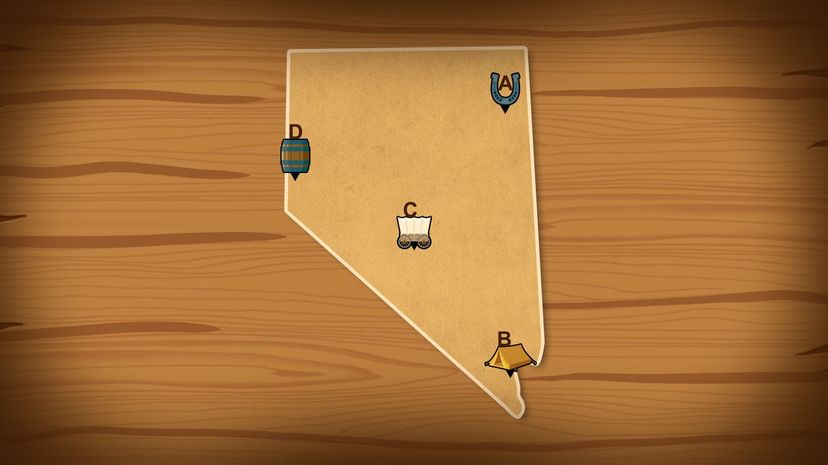
In 1861 prospectors discovered a vein of gold near Eldorado Canyon. It was a good 300 miles to get from Eldorado Canyon to another town, which meant this place was basically on its own as no lawmen would work there. The result was a lawless town with frequent brawls, thefts and murders.
Advertisement
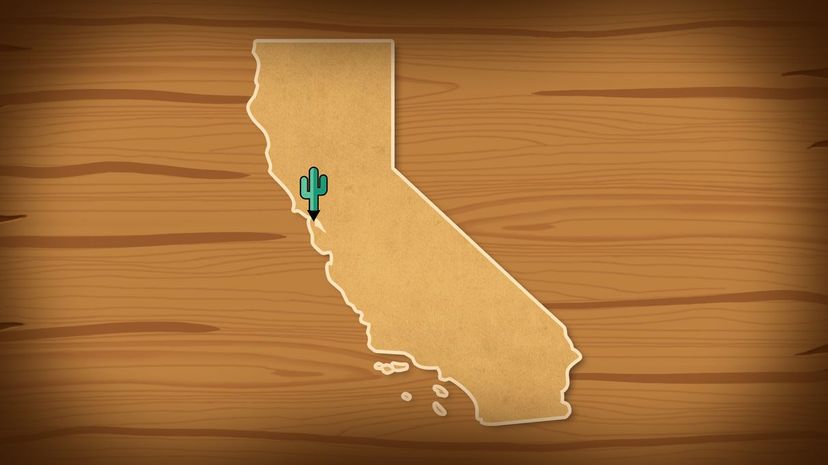
San Francisco was essentially "the" frontier town back in the day. Why doesn't it have that rep today? Because of 1906. The earthquake and subsequent fires razed Wild West San Francisco to the ground.
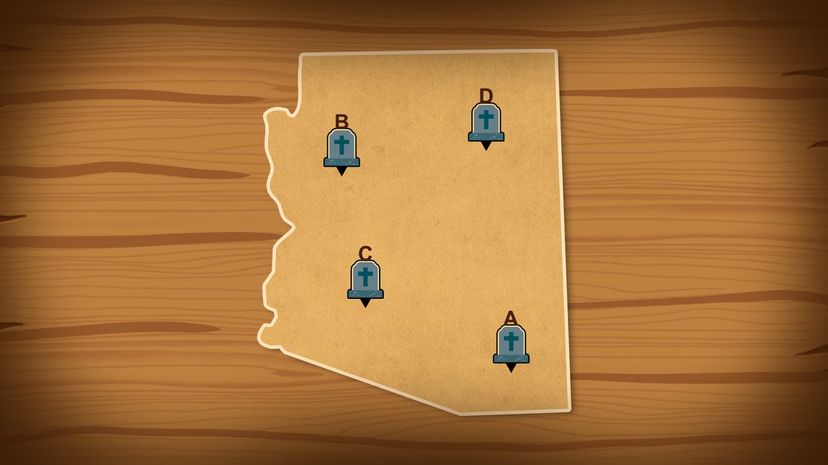
Tombstone, Arizona may be the most famous town in Wild West history thanks in no small part to the number of movies about it. This was the site of the famous gunfight at the OK Corral between Wyatt Earp, his brothers, Doc Holliday, and members of the Cowboys gang. In real life, it lasted less than one minute. It's right there under the A on the map.
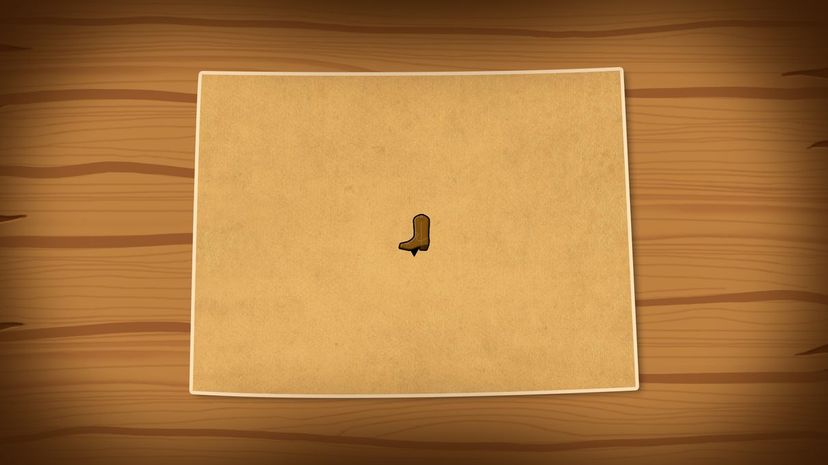
Once upon a time, Cripple Creek, Colorado was a gold-mining town. These days less than 2,000 people live there but there was a time when prospectors from all over swamped the area. Over $500 million in gold ore was pulled out of the region.
Advertisement
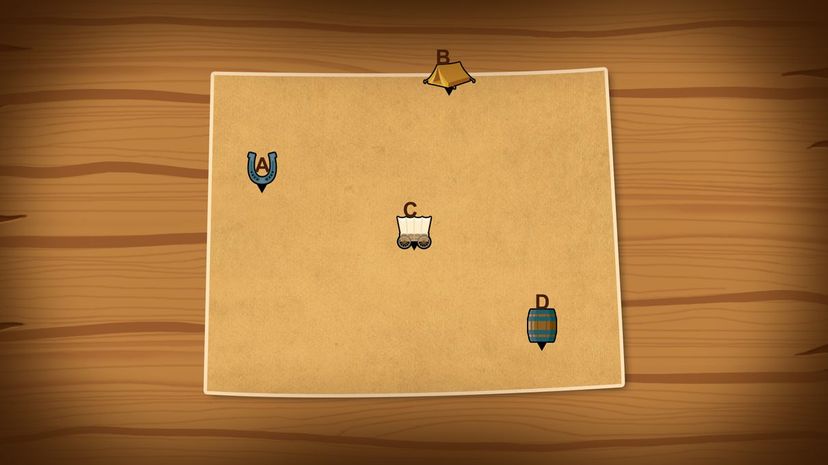
The Sheridan Inn in Sheridan, Wyoming, is said to have been opened in the presence of Buffalo Bill Cody. Every year you can still check out the Sheridan Wyo Rodeo as well. And you can find it marked B on that map.
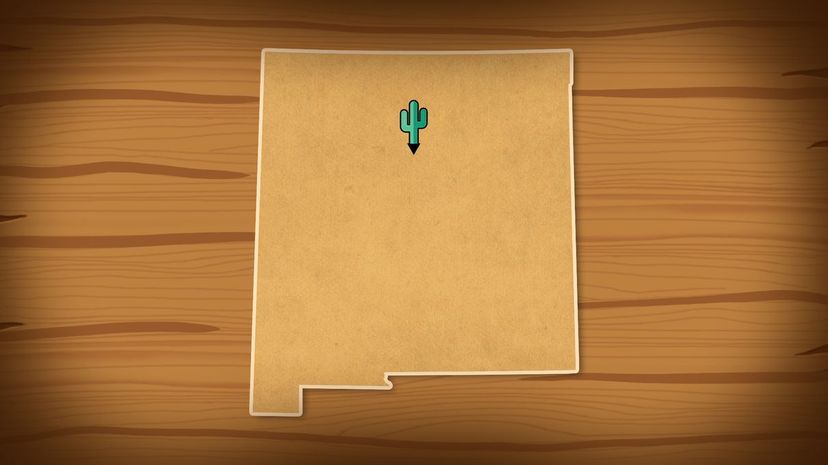
Santa Fe is the third oldest permanent European settlement that you'll find West of the Mississippi and dates back to 1608. A good chunk of the cities you associated with the Wild West exist on what was called the Santa Fe Trail, which shows just how important this town was.
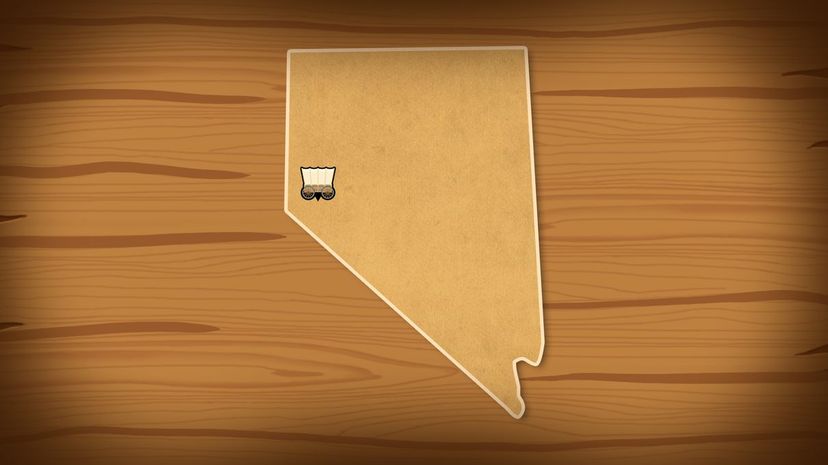
One of the most important mining towns of the Wild West, Virginia City's wealth was a good portion of the reason San Francisco prospered so much at the time. In 1859, a Virginian named James Finney discovered the Comstock Lode here, one of the richest silver deposits in the country.
Advertisement
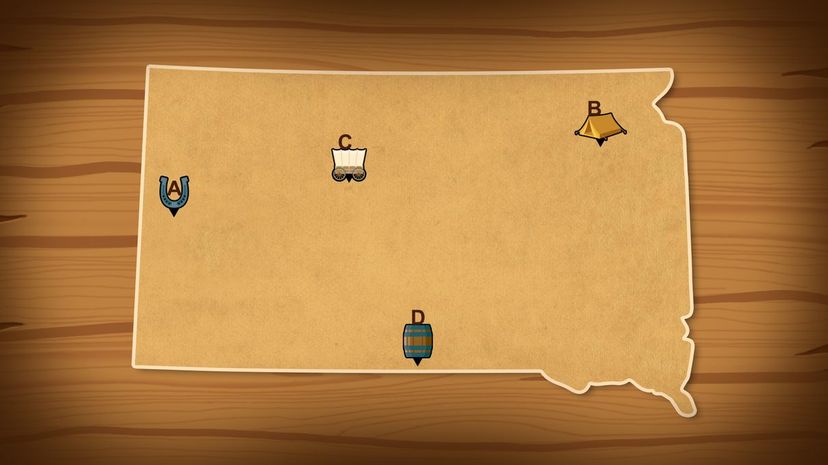
That's Deadwood right there under the A on the map. As you might know from the famed HBO show of the same name, Deadwood was a town that attracted a lot of fortune hunters, not all of them the most law-abiding folks.
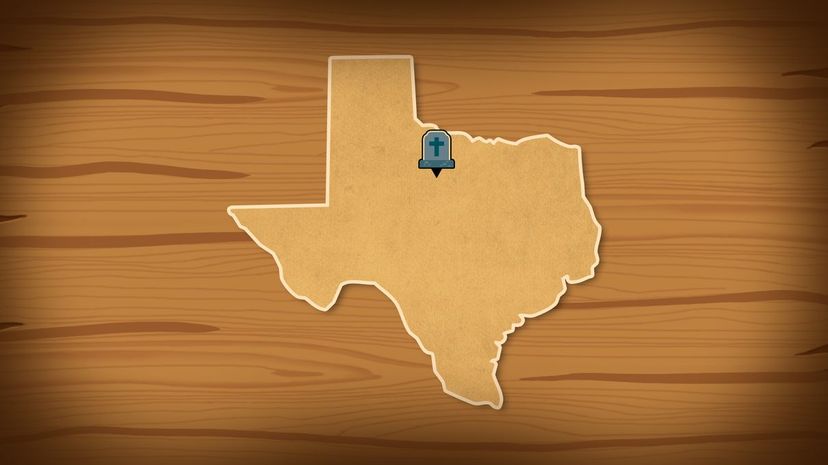
Fort Griffin leaned heavily on the wild side of the Wild West. There were outlaws and raids from neighboring tribes in the area on a pretty regular basis, and in time the fort and surrounding time were basically abandoned.
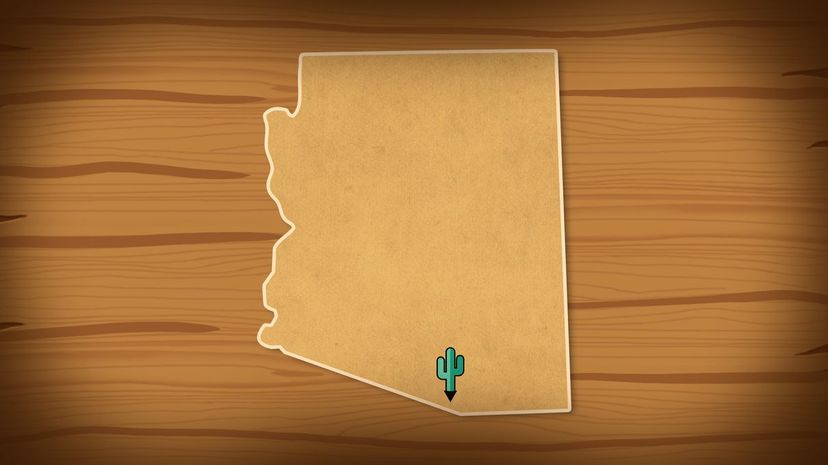
Ruby, Arizona is the result of a lot of people trying to get rich in the same place at the same time. When gold was discovered, people came from all over and set up a roughshod sort of community. There was but one store and they were raided by bandits so often the owners had guns in literally every room of their house.
Advertisement
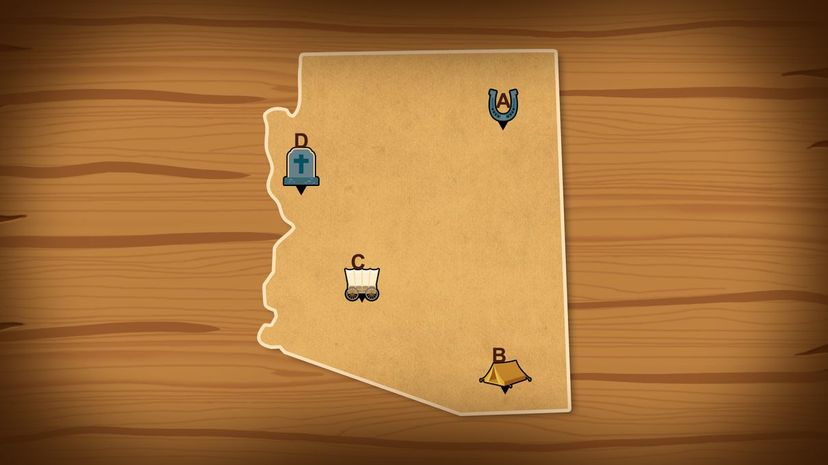
Oatman, Arizona is named for a woman, Olive Oatman, who was born in Arizona. Oatman had been kidnapped by a native tribe then sold to the Mojave. The Mojave adopted her as a daughter and raised her for several years, tattooing her face as well. When she left them, her story, with exaggerations, became widespread.
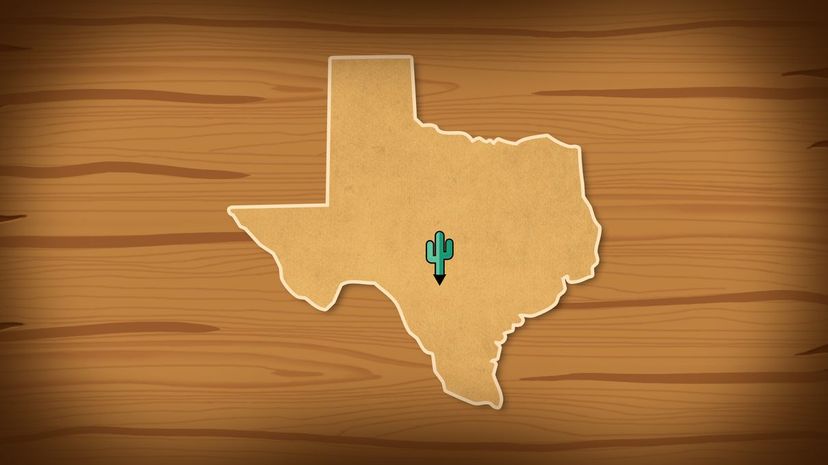
Founded in the late 1800s, Bandera is famous for being the staging point of massive cattle drives back in the day, and also for being the scene for more than its fair share of bloody battles between Native tribes and Spanish Conquistadors. It's right there under the letter A.
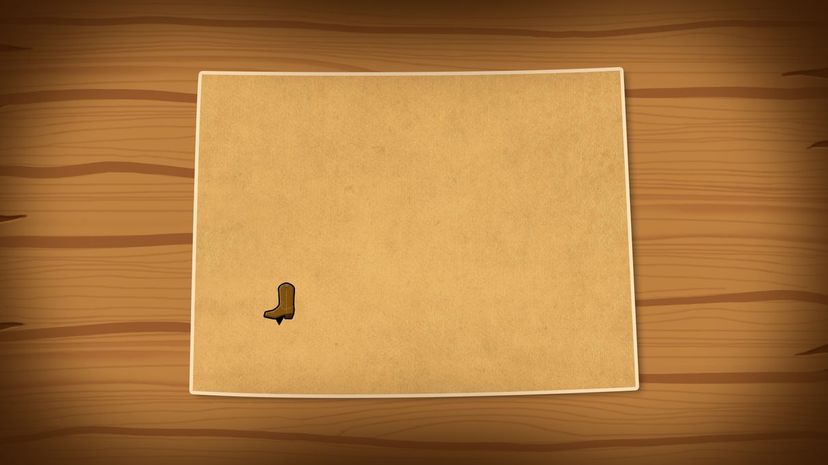
Silverton, Colorado grew out of land that had previously been Ute reservation. Like many mining towns, the promise of riches drew in the crowds and it grew massive in the late 1800s with people mining the nearby mountains.
Advertisement

Cody, Wyoming calls itself the "Rodeo Capital of the World." It gets its name from the famous Wild West showman Buffalo Bill, whose real name was William Frederick Cody. He helped found the Wyoming town that bears his name in 1895.
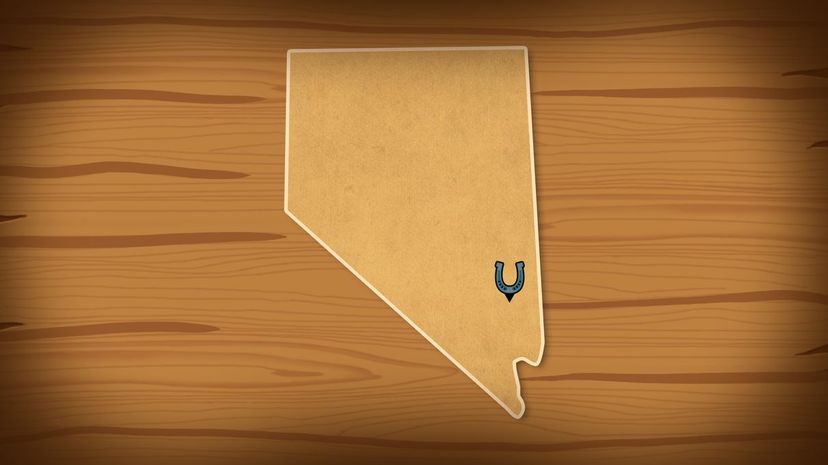
Delamar, Nevada was near a place called Monkey Wrench Gulch which, aside from having a great name, was also full of gold. Unfortunately, the gold was encased in quartz and when they began to mill it to get the gold out, hundreds of miners died from breathing in the dust.
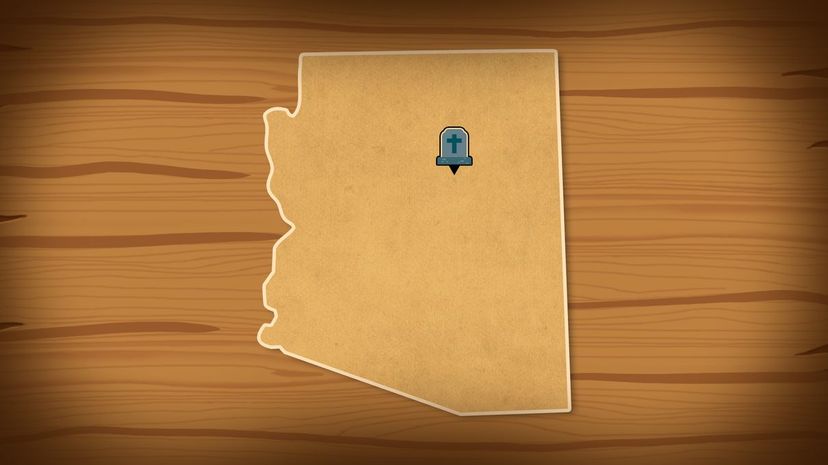
Few towns in the Wild West had such a grim reputation as Canyon Diablo. The railroad being built here hit a snag when a canyon got in the way, so a bridge had to be built. That bridge took 10 years, so Canyon Diablo sprung up during the wait. It had a handful of brothels, 14 saloons, dancing halls, gambling parlors and no law at all.
Advertisement
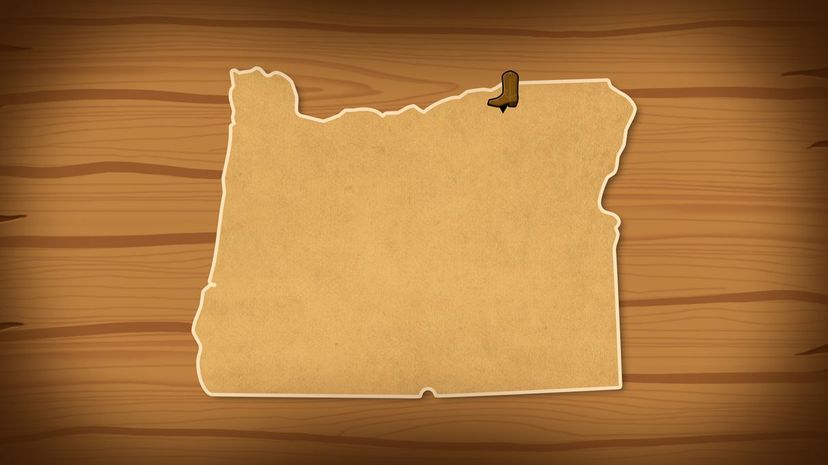
A man named Dr. William McKay established a trading post on the site that would become Pendleton, Oregon back in 1851. By 1900, with its population of 4,406 people, the town was the fourth largest the whole state.
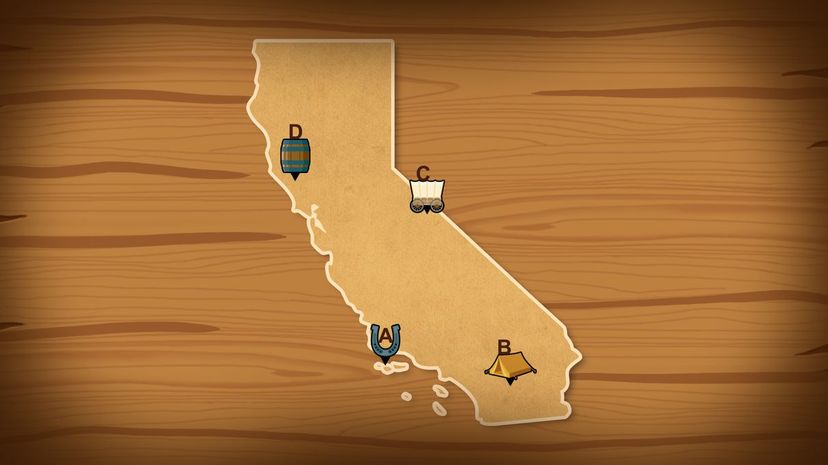
Bodie, California was once a booming gold-mining community that, at its height, had around 7,000 citizens. These days it's just a ghost town that you can visit if you're down for taking a trip east of the Sierra Nevadas.
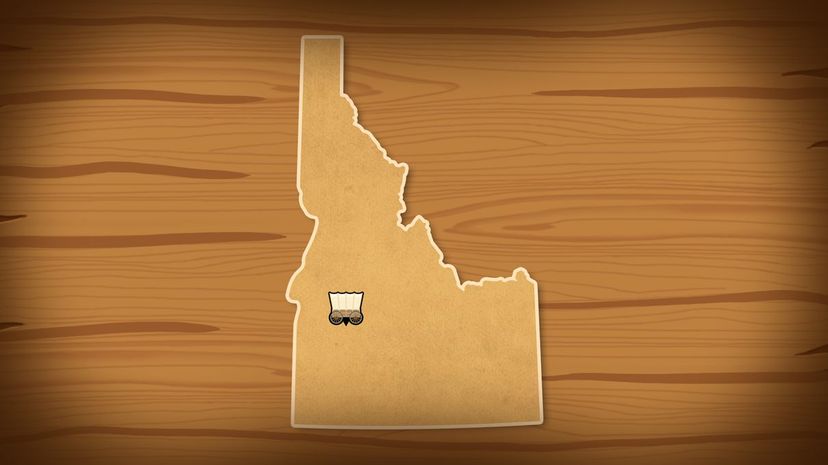
Idaho City, Idaho is a small town in Idaho with a population of less than 500. It was founded as the town of Bannock back in 1862 during what was known as the Boise Basin gold rush. Back in 1864, it was a robust community with over 7,000 people and 200 businesses. A series of fires took their toll, however.
Advertisement
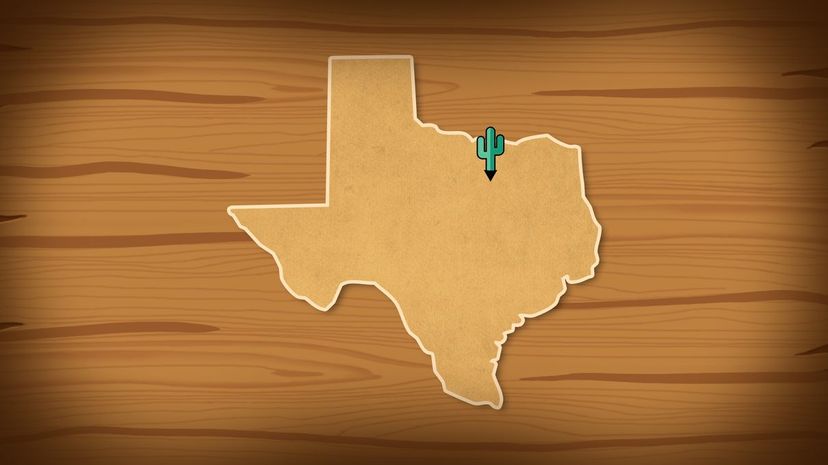
Fort Worth was established in 1849 as the northernmost of 10 posts set up to protect the American Frontier. Cattle drives made it a vibrant and bustling town, and it's grown to become the fifth-largest city in all of Texas.
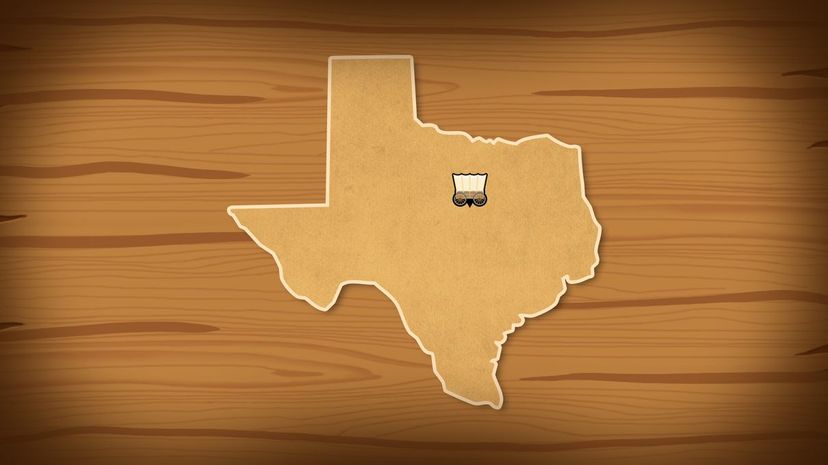
A man named Ollie Roberts, also known as "Brushy Bill" Roberts, lived in the town of Hico, Texas in the 1940s and claimed he was Billy the Kid. He died there in 1950 and there is a museum that offers tourists a tour of the life of Billy the Kid and the opportunity to decide for yourself if Roberts was legit or a fraud.
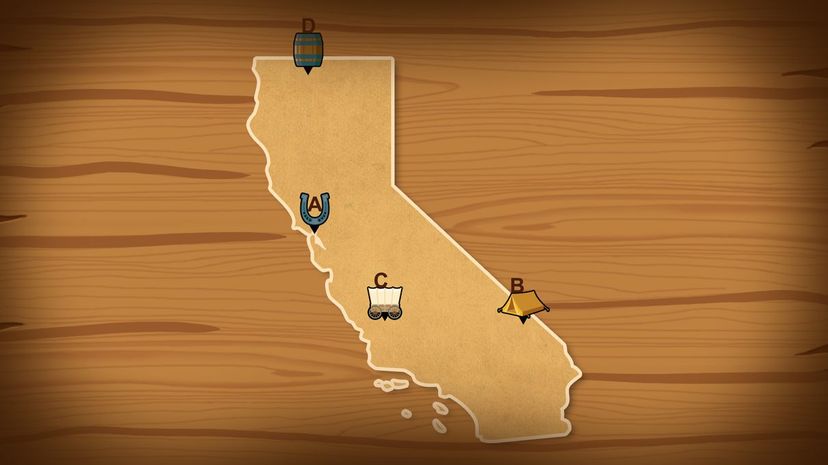
Yreka, California is right there under the "D" on the map. The town went through a few names in its time including "Thomson's Dry Diggings." It had a few famous visitors including Mark Twain, who claimed the town name was the result of someone reading the word "bakery" in a reverse reflection with the B missing.
Advertisement
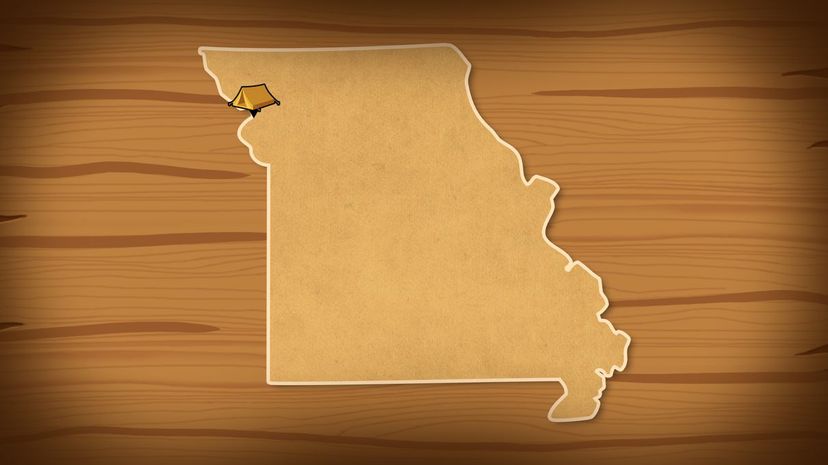
St. Joseph, Missouri, was founded in 1843 by fur trader Joseph Robidoux. In its heyday, it was the last outpost before you headed into the Frontier. For a time it was one of the two endpoints of the Pony Express that couldn't be accessed by rail.
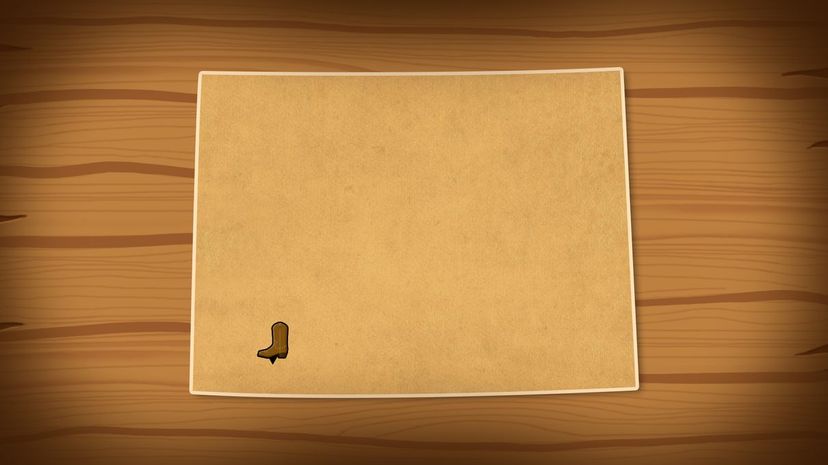
Located on the banks of the Animas River, the town of Durango, Colorado was founded after the Gold Rush. To this day the town embraces its Wild West roots and features a number of tourist attractions that fit the theme.
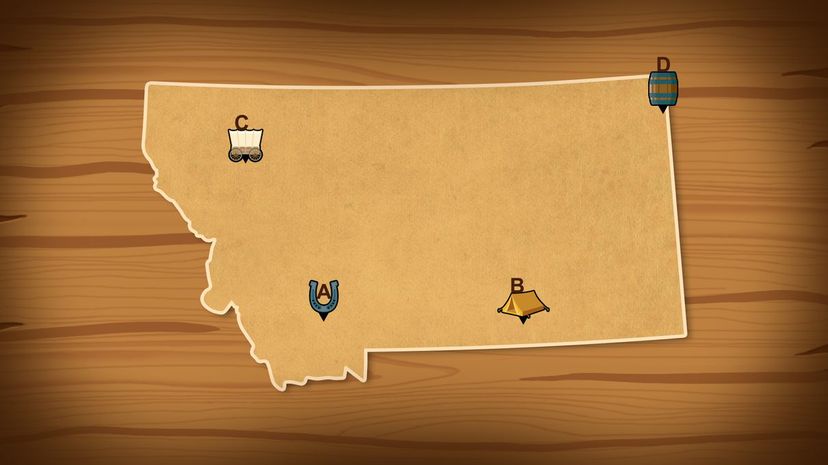
Virginia City is located under that "A" on the map. It was originally founded under the name "Varina" after Varina Howell Davis, the first lady of the Confederate States of America. As the city was not in the Confederate States of America, a judge rejected the name and just called it Virginia City instead.
Advertisement
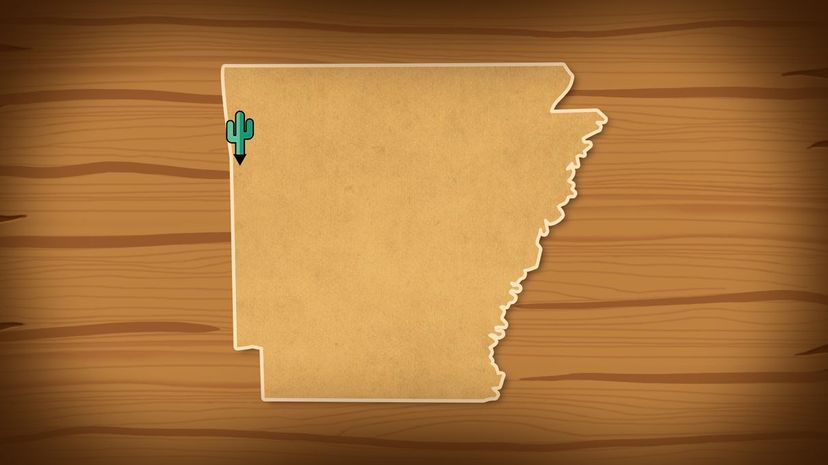
Fort Smith is currently the second-largest city in Arkansas. It had been a military fort until 1824 when the military headed off to Fort Gibson. The land it left behind became the town of Fort Smith.
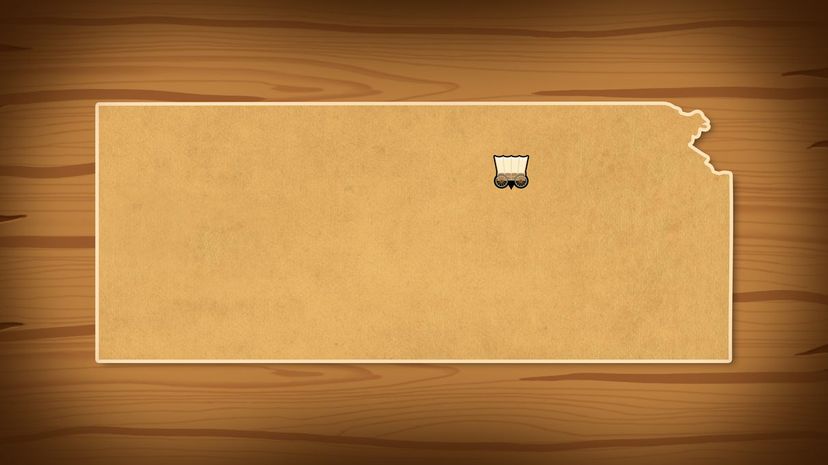
The town of Abilene, Kansas, became a stop for the Kansas Pacific Railway in 1867. It was set up to facilitate cattle cars, and Abilene quickly became the spot to ship cattle, as cattlemen from all over came to Abilene to use its stockyards
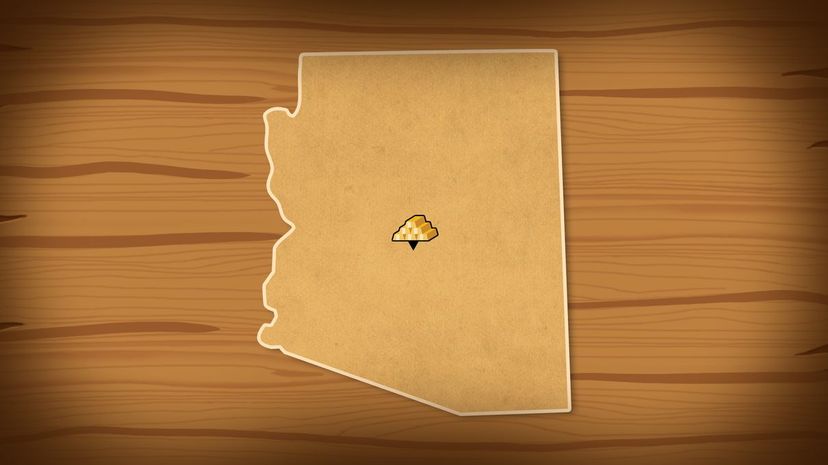
The town of Cave Creek, Arizona, was founded in 1870 by soldiers from the nearby Fort McDowell. From the early days, it was an eclectic mix of military, miners and ranchers who all found advantages to being on the site.
Advertisement
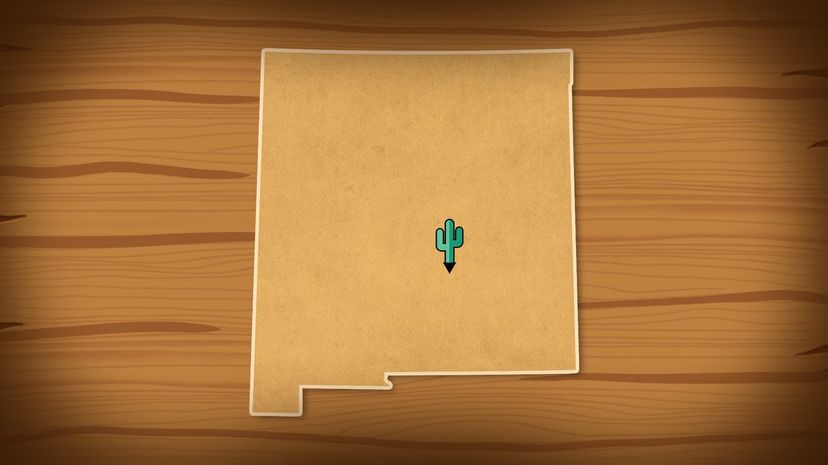
If you've ever seen a Western movie about Billy the Kid then you saw Lincoln, New Mexico, marked under the A on this map. In real life, this was the site of a gun battle that lasted for days between the posse called the Regulators, of which Billy the Kid was a member, and the Evans Gang.
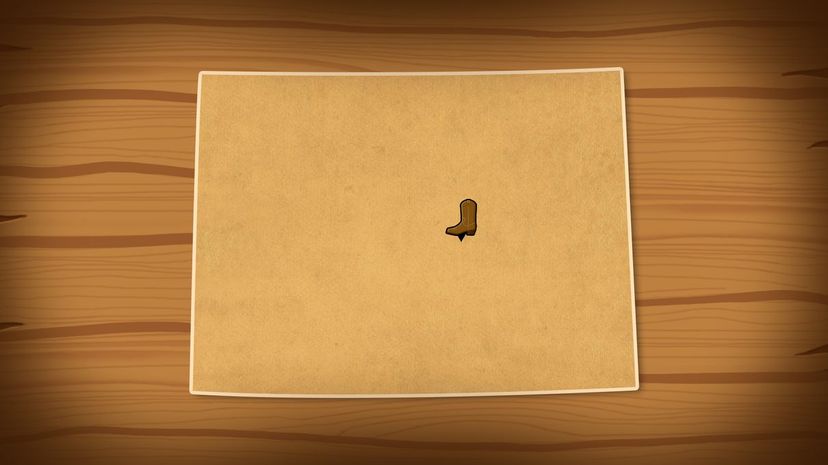
For a time, Colorado Springs was the capital of Colorado before Denver took over. Prior to that this region was populated by several Native tribes including the Arapaho, the Ute and the Cheyenne before the US acquired it in the Louisiana Purchase.

Laramie, Wyoming, had a history of lawlessness that saw a number of lawmen try to wrangle it in its day. The infamous Butch Cassidy even spent a night in prison in Laramie after being caught buying a stolen horse here.
Advertisement
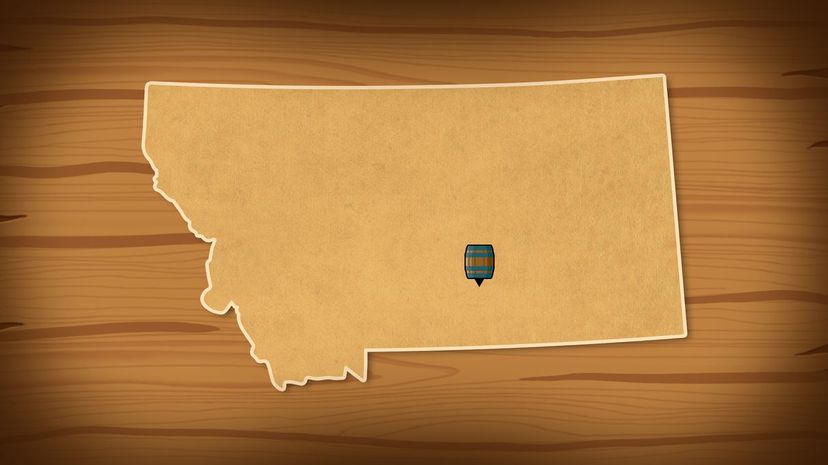
Billings, Montana, sits where a town named Coulson once stood on the Yellowstone River. Before the railroad came to town, only boats could make it to the area and the town was known for being pretty rough. Gun battles were commonplace and there were plenty of saloons and dance halls.
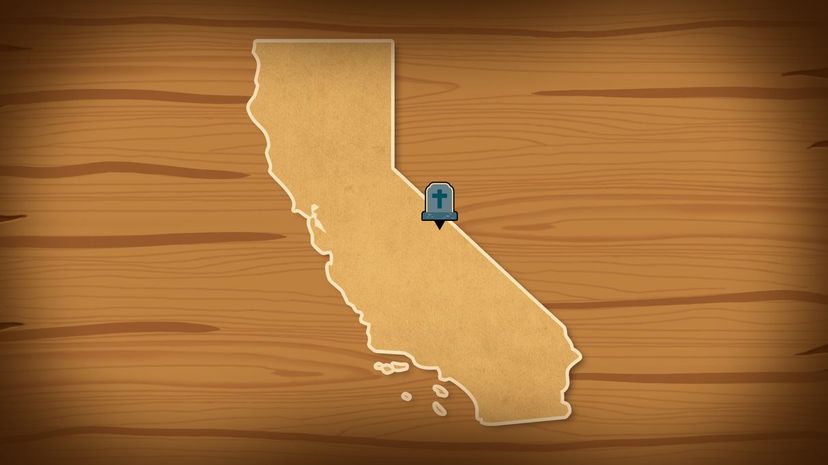
Bishop, California, was famous in the Wild West and famous in recreating the Wild West in Hollywood. Several movies featuring stars like John Wayne and Charlton Heston ended up being filmed here thanks to the Old West aesthetic it still has to this day.
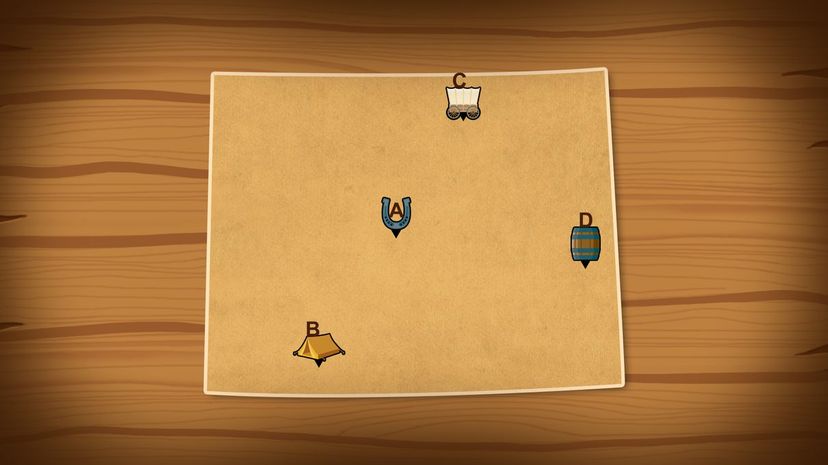
Buffalo, Wyoming is located right there at the C on the map. If you head there in real life you can check out the Jim Gatchell Memorial Museum and its collection of frontier-era covered wagons as well as other historical artifacts from what they call the Big Horn region.
Advertisement
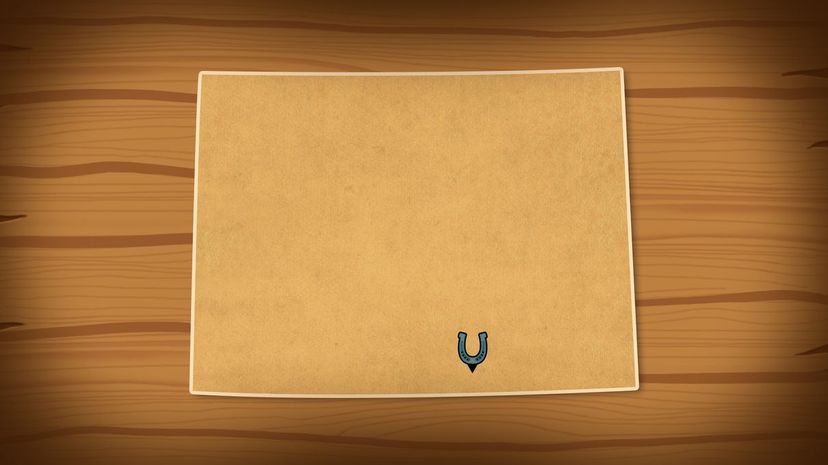
Trinidad, Colorado, was located near the famous Santa Fe Trail. Once coal was discovered a settlement was created in 1862. By 1878 the railroad had reached the town, allowing things to be shipped in and out much more easily. Bat Masterson was even the town's marshal for a time.
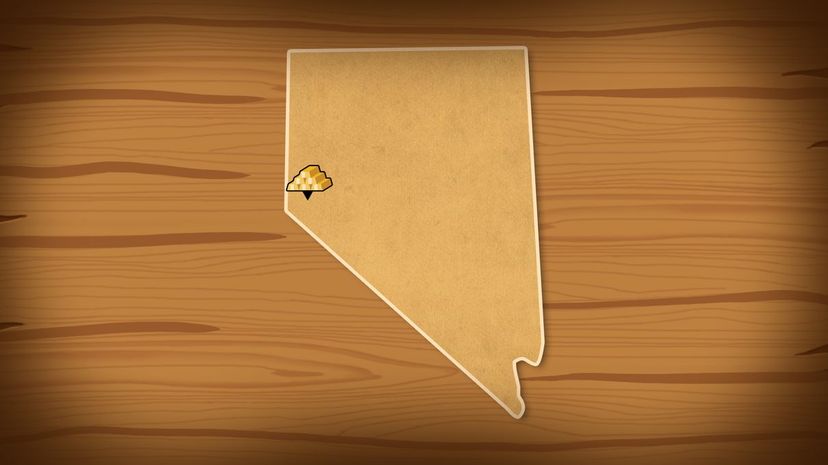
For a time, Dayton was merely a rest stop on the Carson River at the edge of a desert. Once gold was discovered nearby, the town's population exploded. A number of Chinese miners fled California to Dayton to escape a tax levied against them in California.
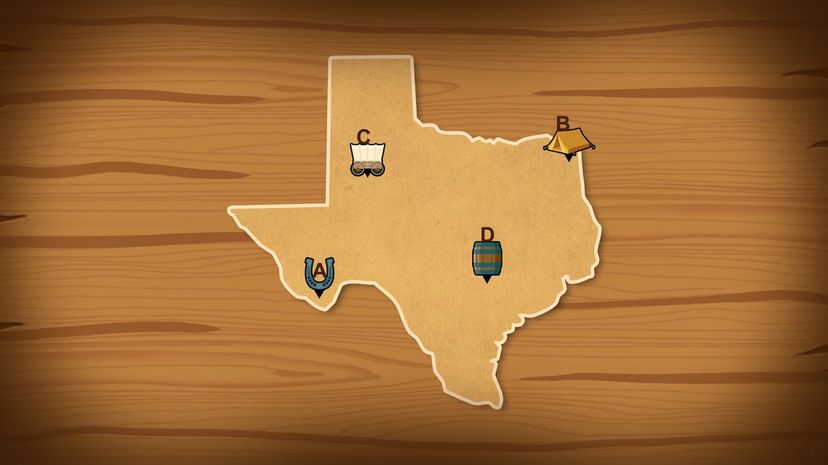
The small town of Gonzales in Texas is located at the D on the map. It was notable for being the first white settlement west of the Colorado River and the site of the first skirmish that led to the Texas Revolution.
Advertisement
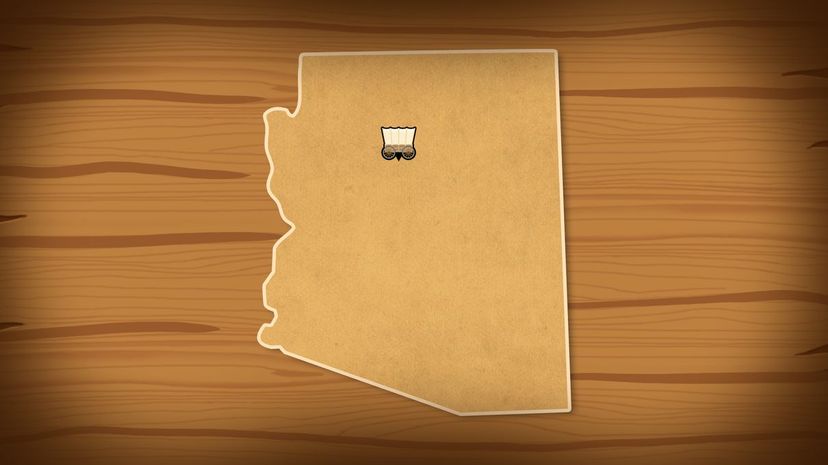
Williams, Arizona, was named for Old Bill Williams, who was known for being a frontiersman and mountain man, sort of a contemporary to Daniel Boone. He was known to speak several native languages and often worked as an interpreter for the government.